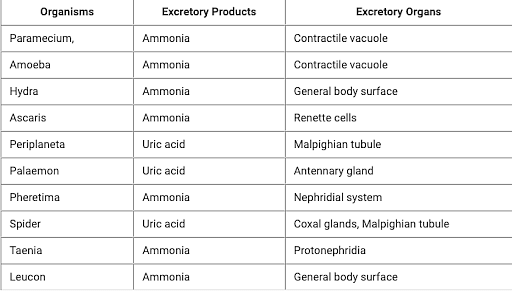Question:
Which of the following does not favour the formation of large quantities of dilute urine?
Which of the following does not favour the formation of large quantities of dilute urine?
Updated On: May 18, 2024
- Renin
- Atrial-natriuretic factor
- Alcohol
- Caffeine
Hide Solution
Verified By Collegedunia
The Correct Option is A
Solution and Explanation
Angiotensinogen is an a-globulin protein produced by liver. Renin serves as an enzyme in the conversion of the plasma protein angiotensinogen into angiotensin. This protein stimulates the adrenal cortex to produce aldosterone which acts on the cells of the ascending limb of the loop of Henle, and increases the rate of reabsorption of Na+. Reabsorption of Na* brings about the uptake of an osmotically equivalent amount of water. Absorption of sodium and water increases blood volume and pressure.
Was this answer helpful?
1
0
Top Questions on excretory products and their elimination
- Match List I with List II
List I List II A Pons I Provides additional space for Neurons, regulates posture and balance. B Hypothalamus II Controls respiration and gastric secretions. C Medulla III Connects different regions of the brain. D Cerebellum IV Neurosecretory cells
Choose the correct answer from the options given below:- NEET (UG) - 2024
- Biology
- excretory products and their elimination
- Given below are two statements: one is labelled as Assertion A and the other is labelled as Reason R.
Assertion A: Nephrons are of two types: Cortical & Juxta medullary, based on their relative position in cortex and medulla.
Reason R: Juxta medullary nephrons have short loop of Henle whereas, cortical nephrons have longer loop of Henle.
In the light of the above statements, choose the correct answer from the options given below:- NEET (UG) - 2023
- Biology
- excretory products and their elimination
Which of the following statements are correct?
- An excessive loss of body fluid from the body switches off osmoreceptors.
- ADH facilitates water reabsorption to prevent diuresis.
- ANF causes vasodilation.
- ADH causes increase in blood pressure.
- ADH is responsible for decrease in GFR.
Choose the correct answer from the options given below:
- NEET (UG) - 2023
- Biology
- excretory products and their elimination
- Excretory organs in Reptiles are____
- TS POLYCET - 2023
- Biology
- excretory products and their elimination
- What is the diameter of malpighian body in a micrometer?
- MHT CET - 2023
- Biology
- excretory products and their elimination
View More Questions
Questions Asked in NEET exam
- A thin flat circular disc of radius 4.5 cm is placed gently over the surface of water. If surface tension of water is 0.07 Nm-1, then the excess force required to take it away from the surface is :
- NEET (UG) - 2024
- Surface tension
- Which of the following are required for the dark reaction of photosynthesis?
A. Light
B. Chlorophyll
C. CO2
D. ATP
E. NADPH
Choose the correct answer from the options given below:- NEET (UG) - 2024
- Where Does Photosynthesis Take Place?
- If \(x=5\sin(\pi i+\frac{\pi}{3})m\) represents the motion of a particle executing simple harmonic motion, the amplitude and time period of motion, respectively, are :
- NEET (UG) - 2024
- simple harmonic motion
- The highest number of helium atoms is in
- NEET (UG) - 2024
- Electronic configuration of atoms and ions
- \(^{290}_{82}X\stackrel{\alpha}{\rightarrow}Y\stackrel{e^+}{\rightarrow}Z\stackrel{\beta^-}{\rightarrow}P\stackrel{e^-}{\rightarrow}Q\)
In the nuclear emission stated above, the mass number and atomic number of the product Q respectively, are :- NEET (UG) - 2024
- Nuclear physics
View More Questions
Concepts Used:
Excretory products and their elimination
The physiological process of the elimination of metabolic waste from the body is called excretion. The excretory products comprise amino acids, carbon dioxide, urea, uric acid, water, and ammonia. Some of the Molluscs and Echinoderms excrete waste products from the body in the form of amino acids. Ammonia is the foremost excretory product in animals, it is derived from the proteins exists in the food we eat.
Excretory Products in Different Organisms:

Read More: Excretion in Human Beings



